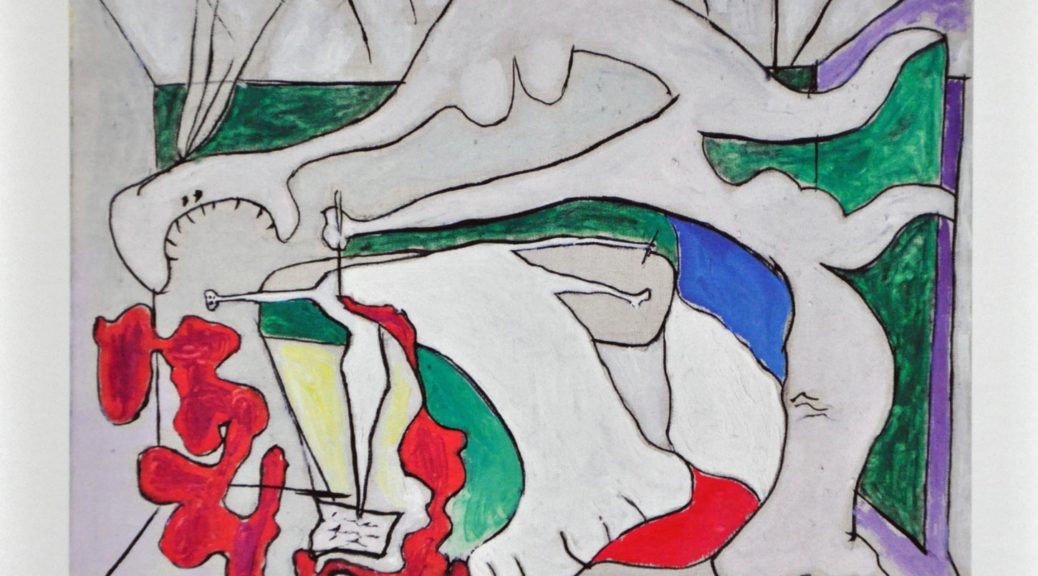Menopause is shit.
There is no other way of describing the experience of peri-menopause (menopause is the end point technically, the day 2 years after your last period)
Put three women together of a certain age, especially friends who know each other well, and the conversation quickly turned to symptoms. & they’re surprisingly varied with very little proven to mitigate those symptoms.
At menopause the hormonal balance in a woman’s body changes.
A quick web search highlights the variety of responses:
Perimenopause can last anywhere from one to 10 years. During this time, the ovaries function erratically and hormonal fluctuations may bring about a range of changes, including hot flashes, night sweats, sleep disturbances, and heavy menstrual bleeding. Other signs of perimenopause can include memory changes, urinary changes, vaginal changes, and shifts in sexual desire and satisfaction.
Some women breeze through the transition. For many others, the hormonal changes create a range of mild discomforts. And for about 20 percent of women, the hormones fluctuate wildly and unpredictably, and spiking and falling estrogen and declining progesterone cause one or more years of nausea, migraines, weight gain, sore breasts, severe night sweats, and/or sleep trouble. For this group, perimenopause can be enormously disruptive both physically and emotionally.
So one of my friends looks to be breezing through the entire process. She reports less frequent periods (now almost non existent) and the occasional hot sweat at night that involves pushing off the quilt and going back to sleep. A bit of digging reveals that she actually struggles to get back to sleep (she’s the stoic friend) but still it seems a relatively straightforward process.
Another has a different story to tell. She is currently engaged in a whole series of tests to make sure that her symptoms are “normal” menopausal responses as opposed to something much more serious, but both her and her doctor are convinced menopause is the answer. A quick run through of her symptoms include:
- night sweats making it difficult to impossible for her to sleep
- night panics or terrors, causing her to wake and again disrupting sleep
- permanent skin discolouration around her face needing quite heavy make-up
- shooting pains up and down her left leg sometimes accompanied by numbness to the touch
Since she’s holding down a full-time heavy duty job, plus raising a 12 year old child, the timing is poor and she’s considering HRT to delay menopause for upto 10 years.
And then there’s me with my occasional night sweats (thankfully not enough to disrupt sleep seriously) and menopausal flooding, which is the devil’s own work. Plus stiff joints and a slight numbness just below my pelvic bone on the left (apparently these are menopausal symptoms, whereas previously I’d just classified them as age).
When oestrogen is lower, the uterine lining gets thinner, causing the flow to be lighter or to last fewer days. And when oestrogen is high in relation to progesterone (sometimes connected with irregular ovulation), bleeding can be heavier and periods may last longer.
In reality this translates as an erratic blood flow that can occasionally and unpredictable generate enough pressure to push out a tampon. Flooding is an apt description of what happens. So no matter how heavy a tampon and thick a sanitary pad, I can be forced to run to the toilet at a second’s notice which obviously makes everyday life a bit limited. There is no way I could “safely” sit through a theatre performance during my period. I cannot be more than a minute away from a functioning and available loo.
And it is the sheer bloodiness that annoys even more than the cramps and pain that often accompany them. Dealing with the consequences in the loo at a bridge club, I suddenly realised I needed to take extraordinary care with my incredibly bloody hand (to the elbow) to avoid marking my white top. Even so I ended up walking back in with some marks on my (thankfully dark) skirt.
And apart from HRT there seems little available that has been proven to alleviate symptoms.
On line advice highlights the frankly useless:
Perimenopause can sometimes be managed through self-help approaches such as meditation, yoga, relaxation, regular exercise, healthful food, enough sleep, and support from family and friends.
Now call me a feminist, but if men were subject to intense random pain, plus blood shooting out of their arse uncontrollably on a monthly basis, I don’t think they’d be left with “self help approaches”.
About 25% of women have heavy bleeding (sometimes called hypermenorrhea, menorrhagia, or flooding) during perimenopause.
Some women’s menstrual flow during perimenopause, like mine, is so heavy that even supersized tampons or pads cannot contain it. If you are repeatedly bleeding heavily, you may become anaemic from blood loss. During a heavy flow you may feel faint when sitting or standing. This means your blood volume is decreased; try drinking salty liquids such as tomato or V8 juice or soup. Taking an over-the-counter NSAID such as ibuprofen every four to six hours during heavy flow will decrease the period blood loss by 25 to 45 percent.
But in the spirit of co-operation, this is where my friends have ended up:
Best friend with no symptoms – woo hoo, we’re all jealous as hell but still talking. Thankfully she has other problems or would be unbearable.
Best friend with symptoms – taking flax supplements to help with the night sweats and anxiety attacks in the night. Seriously considering HRT. I’ve passed on a recommendation from another friend for evening primrose oil.
Me: Currently taking iron tablets to limit any anaemia from the flooding and have just started taking the supplement agnus castus which is supposed to help raise progesterone levels very slightly, but takes a couple of cycles to be useful. I’ve started to make myself drink much more liquids, and will be ordering more tomato juice. And given the increased pain levels, I’ve been taking ibuprofen more regularly during periods.






